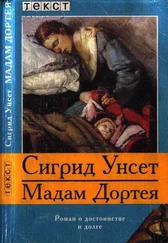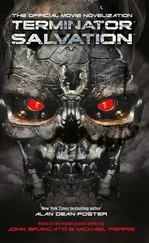Immediately, his temperature had shot up again.
He knew, of course, that it was a lie, for when he was alone she came to him. She was working on a plan to get him out. His job for now was to go along with his captors, to play dumb. He must understand, they were in serious danger: these aliens were capable of anything. He must be vigilant. One slip on his part could doom them both.
But he did slip. He panicked one day and bit one of them, the one he saw most often, a woman, tall and green, like a spear of asparagus. Always frowning. She and her evil syringe. After he bit her he was put in restraints. He cursed and cursed. To punish him they loosed stinging insects between his sheets. Because of the restraints he was at their mercy. He screamed and howled. He didn’t care anymore what the aliens knew, or what they would do to him, he kept calling for his mother. She came one last time. It was no good, no good, she said, twisting her hands; she couldn’t attempt a rescue now, it was too risky. She had to go meet his father. Not a word about coming back.
He had never been so frightened, he had never known that kind of pain. And when it was over, when the fever and the delirium had left him for good, it was as if part of his identity had vanished, too. As if half his life had never happened.
He was told that, after his relapse, he had not been expected to recover. “But you put up such a fight!” said the doctor, pumping his fist. Dr. Hassan was unmistakably proud of him, though Cole didn’t see how a sick person deserved credit for getting better. Dr. Hassan and other members of the hospital staff were gathered around Cole’s bed. Except for Dr. Hassan, they were all in green. They all beamed down at him, they were all proud, and after Dr. Hassan spoke, everyone clapped and the nurse Cole had bitten cuffed his cheek playfully with her bandaged hand.
Cole hadn’t been able to look any of them in the face. He hadn’t been able to say anything, either. He would never have said what he was thinking, and he was angry with Dr. Hassan, he was angry with all of them. How could they not know how he felt?
Eden knew. “Sometimes when things turn out this way, survival can feel like betrayal.”
She told him that his parents were together now, they were together in heaven, from where they were able at all times to look down and see him. He knew the story, knew that this was all it was, a story: his parents themselves had told him so. He knew that they were not able to see him, and that he would never see them again. This was what their being dead meant. And yet his mind could not take it in, that they had been here on earth—never a time in his life when they had not been here—but now they were nowhere . They had become nothing .
But you can’t be angry at nothing, can you? And he was most definitely angry at them.
None of it had had to happen, he believed. His parents had not had to die. He had not had to get sick himself. He refused to accept that nothing could have been done. His parents had been stupid, careless. His father was right: they had blown it. The whole world had blown it. He remembered all those warning articles he’d read. Why hadn’t they been prepared? Someone was responsible. Someone had to be to blame. And indeed, now that the virus had passed, this was what everyone was saying.
“Now is not the time for accusations and finger pointing. We would do better to join hands and look not back but ahead. Let us take up the vast work before us, let us pull together, as one nation, bound in sorrow by this terrible tragedy but full of hope for our future.”
When the president appeared for the first time after her illness, thin, hollow-eyed, and still so frail that she had to support herself on two canes, even among those who hadn’t voted for her—even among those who hated her—there was an outpouring of emotion. America’s mother had been brought to the brink of death, but she had survived. And America would survive, too.
In memory, it was as if he’d never left Chicago. The move to Little Leap and the house he lived in briefly there and the school he so briefly attended—all this he remembered hardly at all. Ironically, some of his most distinct memories turned out to be false. His father had brought home a new dog, a stray he’d almost hit with his car. A feisty young sheepdog that chased a cat under the porch of the house across the street and got into a fight with another dog, an old Labrador.
Zeppo, he’d named the new dog.
Only there was no Zeppo.
Dr. Hassan promised that, in time, his mind would return to normal. “Maybe you won’t be able to remember everything you want to remember when you want to remember it, but for all practical purposes your memory should function just fine.”
No one said anything, though, about what recovering certain memories might do to him.
For the first time in his life, he had migraines. He had ringing in his ears. He had constant nightmares and episodes of sleepwalking.
Occasionally, when he spoke to someone, the person would look at him blankly. Rather than what Cole had intended to (and heard himself) say, out came gibberish.
Once when he tried to stand up from a chair, his legs would not obey.
If people hadn’t kept telling him such things were also happening to other flu victims, he might have gone out of his mind for good.
Nurse Asparagus told him about a famous writer who’d been a child math prodigy until he came down with a case of common flu and mysteriously lost his gift. “We can’t explain it, but we know a fever high enough to cause delirium can scorch things right out of the brain.”
The boy in the bed next to Cole’s had spoken both Spanish and English before he got sick but now could speak only Spanish. Another nurse translated: “Where are my parents?” “I see cockroaches!” “No more needles, they hurt!”
And Cole would hear many other stories like this, including stories of people who’d come through the flu blind or paralyzed or mentally retarded, or who’d go on to develop symptoms of parkinsonism. And the more he heard, the more he understood that he had been lucky.
It was Tracy who said putting Cole on a live radio show might not be such a good idea.
“Why not?” demanded Boots, bean eyes jumping with irritation, and when Tracy replied that she wasn’t quite sure: “In other words, no reason at all? Just women’s intuition or some like nonsense?”
Tracy knew better than to argue with Boots. And since she believed firmly in a wife’s biblical duty to submit to her husband’s authority in all things, she did not challenge PW’s view that she was just being an anxious mother hen.
But as late as the day of the broadcast—that morning—she reminded Cole that no one was forcing him; he could still change his mind.
“Maybe it’s just me, Cole-cakes, but I don’t think I’ve ever seen you look so pale. And I know you haven’t been sleeping so good.”
But Cole couldn’t imagine surviving the shame if he backed out now.
It was true he’d been sleeping poorly all week, but it was not just at night that his mind was unrestful. The thought of the upcoming show—“We’ll keep it real easy and relaxed. Just you and me for about fifteen minutes, then we open up the phones to questions”—had naturally got Cole wondering what he might be asked and how he was going to answer. And it was as if a fissure had opened in him out of which more and more of his past life seeped through.
Now that his memory was so much better, he was able to see how the false had got mixed in with the true. No dog named Zeppo, but his father had hit a dog with his car one time. And Cole remembered lying to his new classmates about wanting a sheepdog, and then wondering why he’d lied. He remembered the first day of school and the last day of school and all the chaos in between. Dogs: the chocolate Lab that belonged to the man who lived on their street, the old man who’d helped his mother carry Cole’s father to the car but refused to go with her to the hospital—he remembered all that. He remembered wanting to hurt that man.
Читать дальше












